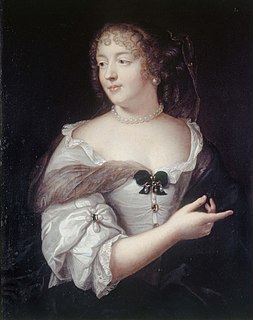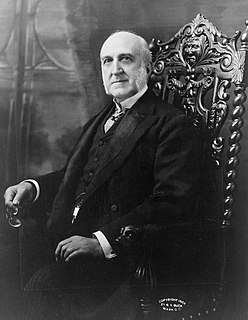A Quote by William Blackstone
Trial by jury is a privilege of the highest and most beneficial nature [and] our most important guardian both of public and private liberty. The liberties of England cannot but subsist so long as this palladium remains sacred and inviolate, not only from all open attacks, ... but also from all secret machinations, which may sap and undermine it.
Related Quotes
Is the relinquishment of the trial by jury and the liberty of the press necessary for your liberty? Will the abandonment of your most sacred rights tend to the security of your liberty? Liberty, the greatest of all earlthy blessings - give us that precious jewel, and you may take every things else! . . . Guard with jealous attention the public liberty. Suspect every one who approaches that jewel.
Conscience is the most sacred of all property; other property depending in part on positive law, the exercise of that being a natural and unalienable right. To guard a man's house as his castle, to pay public and enforce private debts with the most exact faith, can give no title to invade a man's conscience, which is more sacred than his castle, or to withhold from it that debt of protection for which the public faith is pledged by the very nature and original conditions of the social pact.
The distinguishing part of our constitution is its liberty. To preserve that liberty inviolate, is the peculiar duty and proper trust of a member of the house of commons. But the liberty, the only liberty I mean, is a liberty connected with order, and that not only exists with order and virtue, but cannot exist at all without them. It inheres in good and steady government, as in its substance and vital principle.
And these great natural rights may be reduced to three principal or primary articles: the right of personal security; the right of personal liberty; and the right of private property; because as there is no other known method of compulsion, or of abridging man's natural free will, but by an infringement or diminution of one or other of these important rights, the preservation of these, inviolate, may justly be said to include the preservation of our civil immunities in their largest and most extensive sense.
It has been said that the myth is a public dream, dreams are private myths. Unfortunately we give our mythic side scant attention these days. As a result, a great deal escapes us and we no longer understand our own actions. So it remains important and salutary to speak not only of the rational and easily understood, but also of enigmatic things: the irrational and the ambiguous. To speak both privately and publicly.
If we claim heritage in Bacon, Shakespeare and Milton, we also acknowledge that it was for liberties guaranteed Englishmen by sacred charters our fathers triumphantly fought. While wisely rejecting throne and caste and privilege and an Established Church in their new-born state, they adopted the substance of English liberty and the body of English law.
It is in the interest of tyrants to reduce the people to ignorance and vice. For they cannot live in any country where virtue and knowledge prevail. The religion and public liberty of a people are intimately connected; their interests are interwoven, they cannot subsist separately; and therefore they rise and fall together. For this reason, it is always observable, that those who are combin'd to destroy the people's liberties, practice every art to poison their morals.
Those who won our independence believed that the final end of the state was to make men free to develop their faculties... They valued liberty both as an end and as a means. They believed liberty to be the secret of happiness and courage to be the secret of liberty... that public discussion is a political duty; and that this should be a fundamental principle of the American government.
Public virtue cannot exist in a nation without private, and public virtue is the only foundation of republics. There must be a positive passion for the public good, the public interest, honour, power and glory, established in the minds of the people, or there can be no republican government, nor any real liberty: and this public passion must be superiour to all private passions.
Our Nation, a great stage for the acting out of great thoughts, presents the classic confrontation between Locke's views of the state of nature and Rousseau's criticism of them... Nature is raw material, worthless without the mixture of human labor; yet nature is also the highest and most sacred thing. The same people who struggle to save the snail-darter bless the pill, worry about hunting deer and defend abortion. Reverence for nature, mastery of nature- whichever is convenient.
































